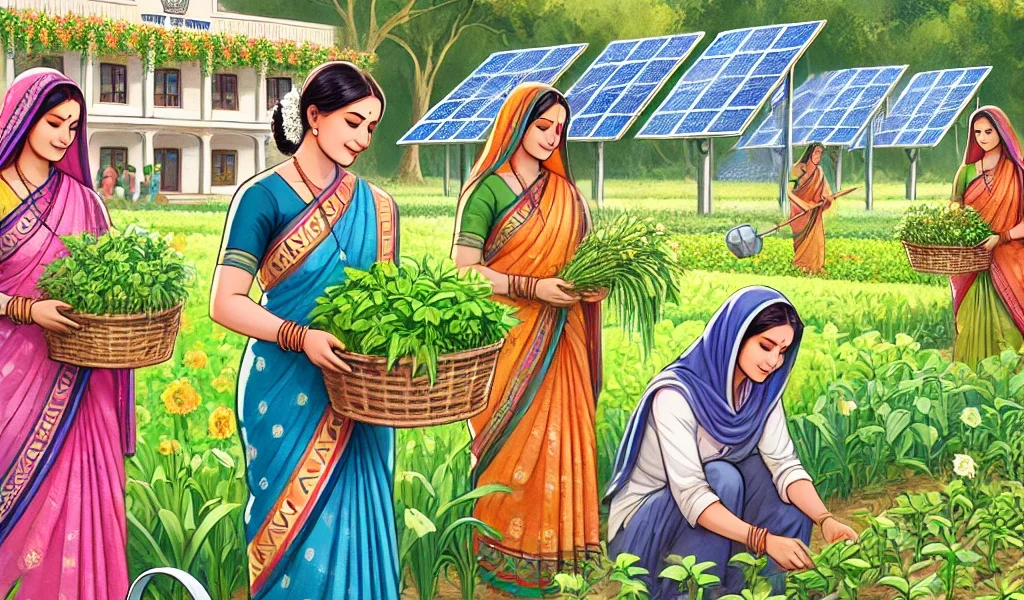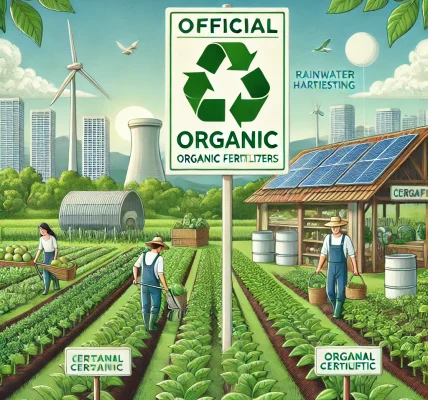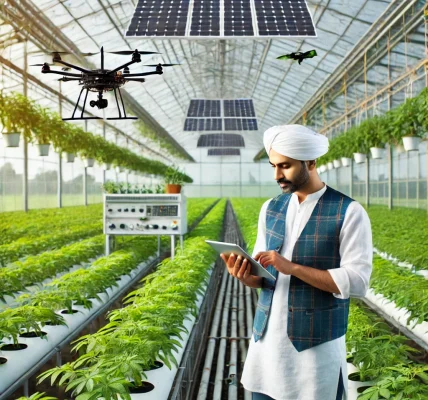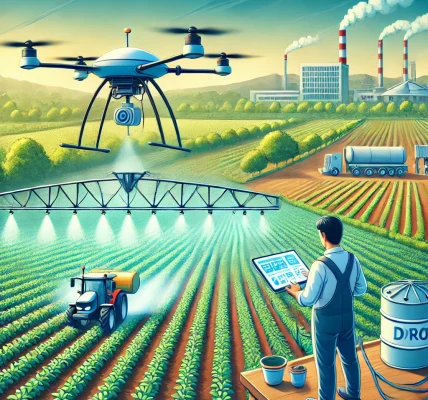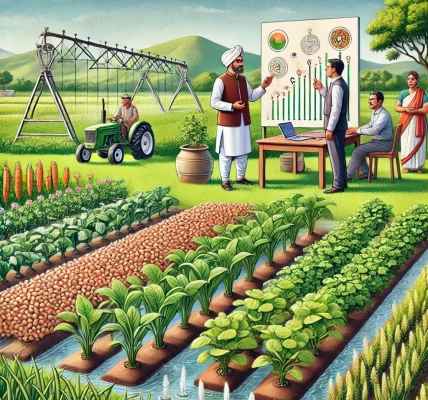Introduction
Women play a vital role in agriculture, contributing significantly to farming, livestock management, and agribusiness. However, they often face limited access to resources, financial aid, and training. To promote gender equality in agriculture, the Indian government has introduced several schemes that provide financial support, training, and subsidies exclusively for women farmers.
This blog explores key government schemes for women farmers, how to apply for them without an agent, and why these initiatives are crucial for an inclusive agricultural sector.
1. Importance of Supporting Women Farmers
- Major Workforce Contribution: Women constitute nearly 33% of the agricultural labor force in India.
- Limited Land Ownership: Only 12.8% of women farmers own land, restricting access to credit and government benefits.
- Need for Financial Independence: Special schemes ensure women farmers get equal opportunities for growth.
- Encouraging Entrepreneurship: Women-led agri-businesses and self-help groups (SHGs) need funding and market linkage support.
2. Government Schemes Empowering Women Farmers
a) Mahila Kisan Sashaktikaran Pariyojana (MKSP)
- Aims at empowering women farmers through training and capacity building.
- Provides financial assistance for sustainable agricultural practices.
- Encourages self-help groups (SHGs) and women cooperatives.
b) Rashtriya Mahila Kosh (RMK)
- Provides microfinance and low-interest loans to women farmers.
- Encourages rural women entrepreneurs in the agriculture sector.
- Helps fund dairy farming, organic farming, and food processing units.
c) PM Kisan Samman Nidhi Yojana (PM-KISAN) for Women
- Provides ₹6,000 per year to small and marginal women farmers.
- Women landowners can apply directly for financial assistance.
- Encourages better farm management and productivity enhancement.
d) NABARD’s Women Self-Help Group (SHG) Bank Linkage Program
- Offers subsidized loans to women farmers through SHGs.
- Provides funding for poultry, dairy farming, and small-scale agri-businesses.
- Focuses on financial inclusion and self-sufficiency.
e) Agri-Clinic & Agri-Business Centre (ACABC) Scheme
- Supports women agripreneurs in setting up agri-businesses.
- Provides loans and training in farm advisory services.
- Encourages rural women to take up leadership roles in agriculture.
f) National Rural Livelihood Mission (NRLM) – Women Farmer Initiatives
- Focuses on training and skill development for women in agriculture.
- Helps in accessing credit for agri-business and farming inputs.
- Promotes organic farming, vegetable production, and dairy farming.
3. How to Apply for Agricultural Schemes Without an Agent?
Many farmers rely on agents to apply for government schemes, but it is possible to apply independently and avoid extra costs. Below is a step-by-step guide:
Step 1: Check Eligibility
- Must be a registered farmer or self-help group (SHG) member.
- Should have a valid Aadhaar-linked bank account.
- Must own land or be actively involved in agricultural activities.
Step 2: Prepare Required Documents
- Land ownership certificate (if applicable).
- Aadhaar card and bank account details.
- Self-help group (SHG) membership proof (if applicable).
- Loan application forms (for financial assistance programs).
Step 3: Apply Online
- Visit official portals:
- https://pmkisan.gov.in – for PM-KISAN scheme.
- https://nabard.org – for NABARD SHG loans.
- https://rural.nic.in – for NRLM schemes.
- State agriculture department websites for local schemes.
- Register using an Aadhaar-linked mobile number.
- Fill out the application form and upload documents.
- Track application status online.
Step 4: Offline Application Process
- Visit nearest Krishi Vigyan Kendra (KVK) or NABARD office.
- Request an application form for the relevant scheme.
- Fill in details and submit it with supporting documents.
- Collect an acknowledgment receipt for tracking.
4. Benefits of Government Schemes for Women Farmers
- Financial Security: Women farmers get direct financial aid.
- Better Productivity: Access to seeds, fertilizers, and machinery increases farm output.
- Economic Independence: Microfinance and self-help groups help women build agribusinesses.
- Skill Development: Training programs empower women in organic farming, food processing, and farm management.
- Social Upliftment: Encourages more women participation in agriculture and decision-making.
5. Legal Precautions to Avoid Fraud
- Apply only through official government websites.
- Avoid agents or middlemen asking for extra fees.
- Keep copies of all application forms and receipts.
- Verify eligibility criteria before applying.
Conclusion
Women farmers are an essential part of India’s agricultural economy. Government schemes play a crucial role in providing financial assistance, training, and resources to empower them. By applying directly through official channels, women farmers can access benefits without extra costs and grow their agricultural ventures successfully.
Encouraging women entrepreneurship in farming will lead to a more equitable, sustainable, and productive agricultural sector in India.
Do you know a woman farmer who can benefit from these schemes? Share this guide and help them access the right financial support! 🌾
